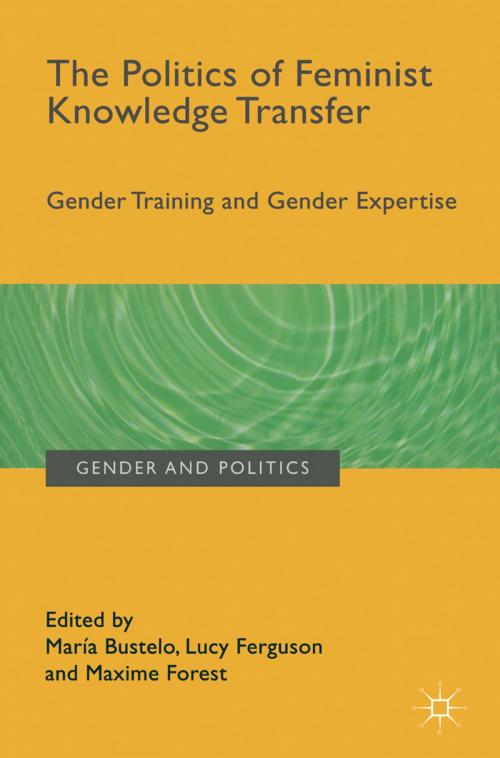The Politics of Feminist Knowledge Transfer
Gender Training and Gender Expertise
Nonfiction, Social & Cultural Studies, Social Science, Gender Studies, Feminism & Feminist Theory, Political Science| Author: | ISBN: | 9781137486851 | |
| Publisher: | Palgrave Macmillan UK | Publication: | May 10, 2017 |
| Imprint: | Palgrave Macmillan | Language: | English |
| Author: | |
| ISBN: | 9781137486851 |
| Publisher: | Palgrave Macmillan UK |
| Publication: | May 10, 2017 |
| Imprint: | Palgrave Macmillan |
| Language: | English |
The Politics of Feminist Knowledge Transfer draws together analytical work on gender training and gender expertise. Its chapters critically reflect on the politics of feminist knowledge transfer, understood as an inherently political, dynamic and contested process, the overall aim of which is to transform gendered power relations in pursuit of more equal societies, workplaces, and policies. At its core, the work explores the relationship between gender expertise, gender training, and broader processes of feminist transformation arising from knowledge transfer activities. Examining these in a reflective way, the book brings a primarily practice-based debate into the academic arena. With contributions from authors of diverse backgrounds, including academics, practitioners and representatives of gender training institutions, the editors combine a focus on gender expertise and gender training, with more theory-focused chapters.
The Politics of Feminist Knowledge Transfer draws together analytical work on gender training and gender expertise. Its chapters critically reflect on the politics of feminist knowledge transfer, understood as an inherently political, dynamic and contested process, the overall aim of which is to transform gendered power relations in pursuit of more equal societies, workplaces, and policies. At its core, the work explores the relationship between gender expertise, gender training, and broader processes of feminist transformation arising from knowledge transfer activities. Examining these in a reflective way, the book brings a primarily practice-based debate into the academic arena. With contributions from authors of diverse backgrounds, including academics, practitioners and representatives of gender training institutions, the editors combine a focus on gender expertise and gender training, with more theory-focused chapters.















